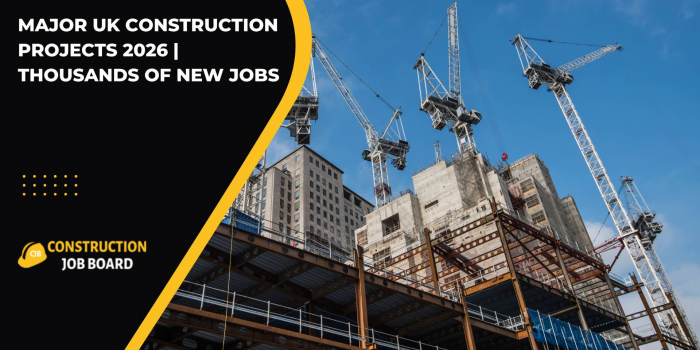How Commercial Managers Drive Success in the UK Construction Industry
31/03/2025

Do you seek commercial manager jobs within the construction sector? The UK construction market is booming with new opportunities to build your professional career. From seasoned commercial manager to transitioning to this role, now is a great time to consider new employment opportunities.
What Does a Commercial Manager Do?
A commercial manager is a vital figure in the construction sector, responsible for managing financial and contractual matters of projects. Some of their main duties are:
- Budgeting and cost control
- Contract negotiation
- Compliance with legal requirements
- Procurement and supplier contract management
- Risk management and mitigation
As construction projects become larger and more complex, the need for skilled commercial managers has never been greater.
Why Become a Commercial Manager?
Being a commercial manager in the construction industry has several advantages, such as:
Job Security: The UK construction industry is still growing, providing stable demand for professionals.
Competitive Salaries: Commercial managers can expect good salaries, with chances for career growth.
Varied Workplaces: From residential and commercial properties to large infrastructure projects, commercial managers work in a range of workplaces.
Career Advancement: With experience, career professionals can move to higher positions, including director of commercial operations.
How to Search the Top Commercial Manager Jobs in the UK
If you are looking for Construction Jobs UK, there are a number of ways to optimize your job search:
Utilize Specialty Job Boards: Websites such as Construction Job Board publish fresh commercial manager jobs.
Optimize Your CV: Emphasize your experience of budget handling, contract negotiation, and leadership abilities.
Network with Industry Professionals: Visit construction job fairs, participate in online forums, and network with recruiters.
Gain Additional Qualifications: Project management and contract law certifications can provide you with a competitive advantage.
Explore Commercial Manager Jobs Today
If you are ready to advance your career, begin searching for commercial manager positions today. Go to Construction Job Board and discover the current job opportunities available in the UK construction sector. Whether you are an experienced individual or a rising commercial manager, there are a variety of career opportunities available to you.
Don't wait for your perfect job—send your application and start a winning career in UK construction industry today!
Commercial Manager in Construction: FAQs
Q1. What is the role of a commercial manager in construction?
A commercial manager oversees the financial, contractual, and risk aspects of construction projects. They handle budgeting, contract negotiation, procurement, and compliance to ensure projects are delivered profitably and efficiently.
Q2. Why are commercial managers important in the UK construction industry?
As construction projects become more complex, commercial managers play a critical role in cost control, risk management, and legal compliance. Their work helps ensure that projects succeed both financially and operationally.
Q3. What skills make a successful commercial manager?
Essential skills include financial management, contract negotiation, risk assessment, and procurement expertise. Strong leadership, communication, and project management abilities are also vital for success.
Q4. How do commercial managers contribute to project success?
They ensure success by managing budgets, negotiating contracts, and overseeing supplier relationships. By identifying risks early and making strategic decisions, they help projects stay on schedule, within budget, and aligned with quality standards.
Q5. Can commercial managers work across different types of construction projects?
Yes. Commercial managers can manage residential, commercial, and large-scale infrastructure projects. Their financial and managerial expertise allows them to adapt to the unique requirements of each project type.





















































































































